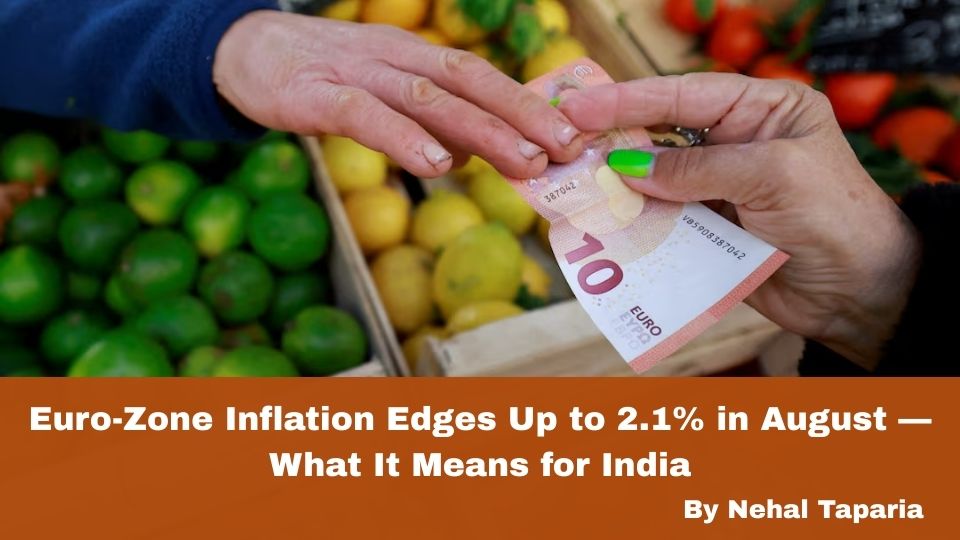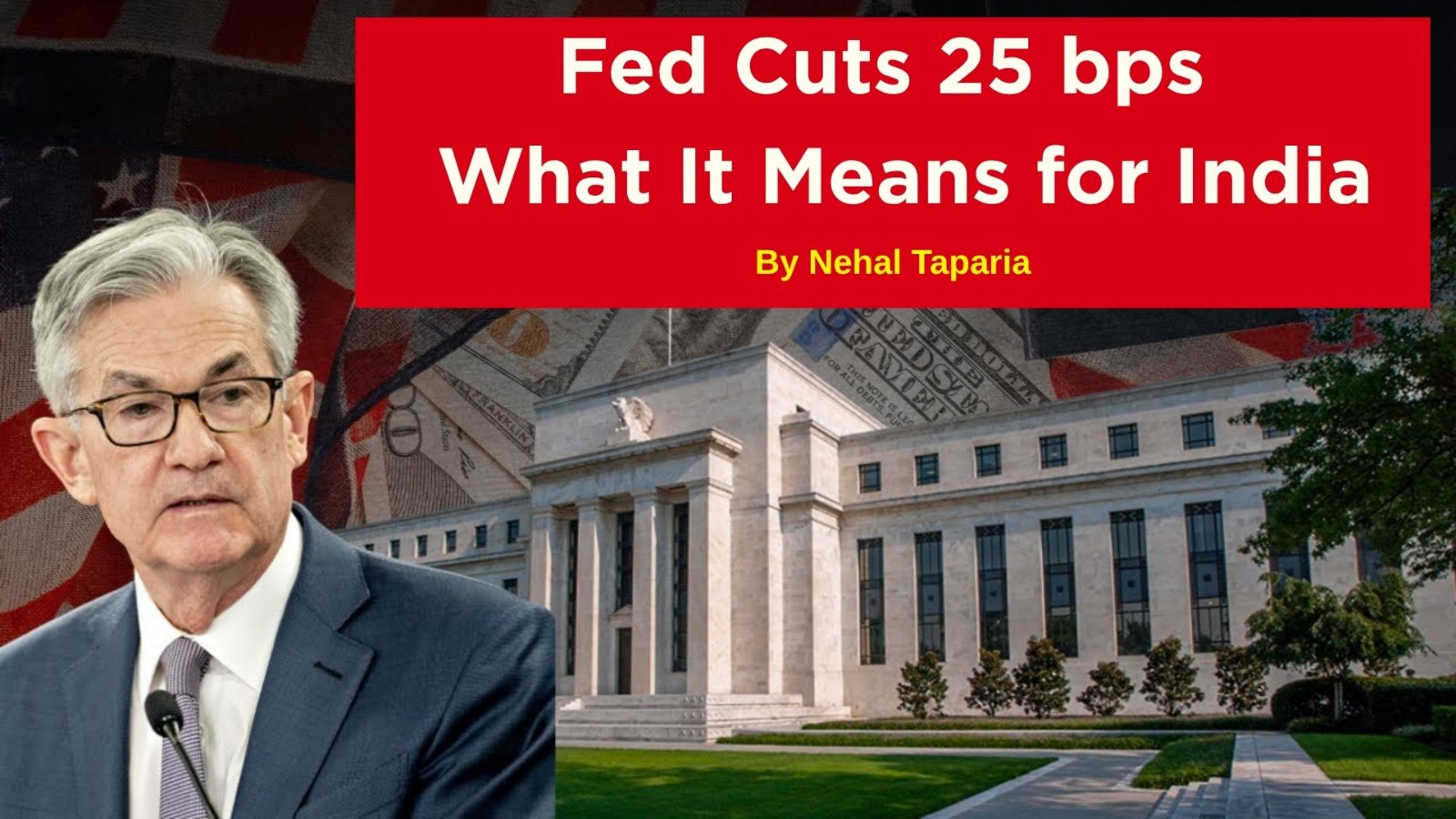Euro-Zone Inflation Edges Up to 2.1% in August — What It Means for India

Euro-Zone Inflation Edges Up to 2.1% in August — What It Means for India
Key Insight: Inflation in the euro area ticked up to 2.1% in August, from 2.0% in July, slightly exceeding expectations. This uptick was driven by a rise in unprocessed food prices and a diminished drag from energy costs.
Market and Policy Implications:
ECB’s Dilemma: The slight rise in inflation strengthens expectations that the European Central Bank ECB will hold rates steady in the near term, rather than ease them further.
Core Inflation Remains Sticky: Core inflation excluding volatile food and energy was steady at 2.3%, adding pressure on ECB policymakers to remain cautious.
Investor Sentiment: With inflation holding firm and policy direction kept uncertain, European equities and bonds are showing signs of volatility, while safe-haven assets like gold are attracting flows.
Impact on the Indian Market
1. Foreign Trade & Currency Dynamics
The ECB holding rates steady may support a stronger euro in the near term, potentially reducing volatility in the EUR/INR currency pair. This can benefit Indian exporters by stabilizing revenue from euro-based sales.
2. Capital Flows
European investors seeking relatively better returns may explore emerging markets, including India. A stable inflation outlook in Europe could buoy sentiment for Indian equities and bonds.
3. Commodities and Energy
Slower energy inflation in the euro-zone hints at moderating global commodity prices—beneficial for India’s import costs, especially given its reliance on oil imports.
4. Monetary Policy Signals
The ECB’s stance may influence global central bank thinking. If India’s RBI perceives global inflation easing, it may gain flexibility in managing domestic liquidity and interest rates.
5. Investor Sentiment
Stability in global inflation and policy expectations can create a calm macro backdrop, improving investor confidence in Indian equities, especially in sectors like IT services and pharmaceuticals with Europe-linked demand.
Summary Table: Global Inflation & India
Euro-Zone Inflation Aug Policy Outlook Implications for India
2.1% up from 2.0% ECB likely to hold rates Encourages FII inflows, steadier currency, lower commodity costs.
Core inflation at 2.3% Underlying price pressures Signals global stability; supports steady domestic monetary policy.
Rising food prices Inflation volatility Watch for potential spill-overs in global agri-commodity prices.
Bottom Line: The euro-zone’s soft increase in inflation underscores a cautious but stable global backdrop. For India, this translates into favorable trade terms, potential capital inflows, and a benign environment for commodity-dependent sectors.
By Nehal Taparia
This content is for educational and knowledge purposes only and should not be considered as investment or Trading advice. Please consult a certified financial advisor before making any investment or Trading decisions.
Our Recent FAQS
Frequently Asked Question &
Answers Here
Q1: What exactly is the euro-zone inflation figure for August?
Annual inflation rose to 2.1%, up from 2.0% in July—slightly above consensus expectations, mainly due to higher food prices and milder energy deflation.
Q2: What does this mean for ECB monetary policy?
Q3: Why is core inflation significant?
Q4: How are markets reacting to this inflation update?
Copyright © By Empirical F&M Academy. Design & Developed by Techno Duniya


.jpg)


.jpeg)




